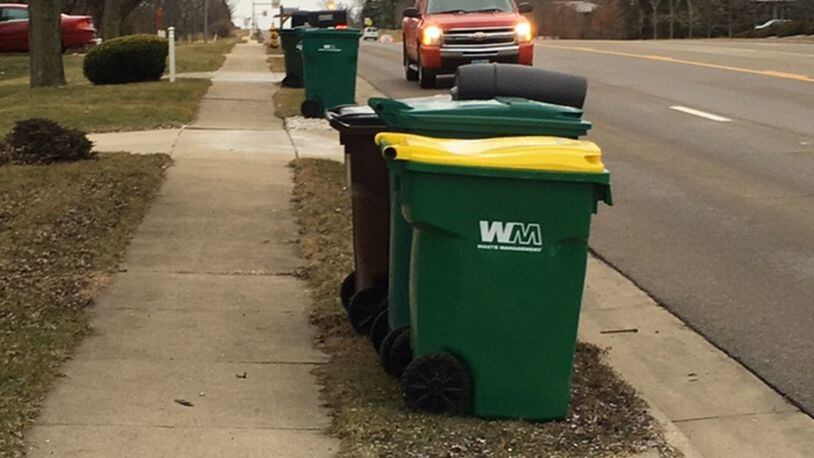“It’s another tool … for the township to use to maintain the standards that our residents expect us to keep,” he said.
“We’re not putting this in place with a specific desire or intent to go out and create a new police force knocking on (residents) doors and accessing fines every other day,” he added.
TRENDING: Dog mauling charge: ‘A misdemeanor for a death – that’s disturbing’
Civil citation fines are the most significant change with the new guidelines, said Miami Twp. Community Development Director Chris Snyder. It includes the following penalties that would be paid to the township:
•First offense: $100.
•Second offense: $250.
•Third offense: $500.
•Fourth and each subsequent offense: $1,000 each.
“We have some chronic violators that in the past we have not had anything to give us any teeth to get them to fix what the problem was,” said Doug Barry, board of trustees vice president.
MORE: Local Ohio State band alum will dot the ‘i’ again — 30 years later
“So this gives us the opportunity to work … with the property owner,” he added. “Because we want to get this resolved without a fine.”
A series of resolutions approved by trustees last week streamlines the township exterior property enforcement code. The new 19-page code, which becomes effective in late September, includes a wide variety of items ranging from trash containers, RVs and light fixtures to accessory structures, commercial parking, furniture and damaged property.
Blight has been a priority for township officials since the adoption of a strategic plan three years ago.
The new rules include definitions of items consistent with language in state law, Snyder said.
Among the new standards:
• Garbage containers can be on curbs 24 hours before and after designated collection days.
• Swimming pools defined as a pool designed to hold at least two feet of water.
The measures approved by trustees include guilty parties paying the township directly, rather than the current system of judges imposing fines and court costs, Snyder said.
But, “we’re not going to make a lot of money off of what these fines are. This is not a revenue generating thing,” Barry said.
Dayton-Cincinnati Pike resident Ralph Tinch has said code inspectors have in the past arrived unprovoked at his 100-year-old home looking for violations. That practice won’t be part of the township’s process, officials said.
“Our code enforcement officer is not out looking to go after people,” Barry said. “They are dealing with a very few number of people who we need to get their attention to get violations fixed. This gives us the ability to do it.”
Complaints will be handled on a case-by-case basis, Snyder said.
“We’ll work with somebody if we see they’re making progress and making an effort to correct whatever the situation is, depending on what the condition of (the) property is,” he said.
Under the new guidelines, Snyder said, civil citation notices will be sent to property owners, although staff seeks to contact first-time violators directly. A police officer would issue the citation and property owners could either accept or challenge it, he said.
Violators can admit the problem and mail the fine or pay the fiscal officer directly, according to Snyder. Those who deny the charges can do so in writing or simply not pay the fine, and a court hearing will be scheduled, he said.
About the Author
